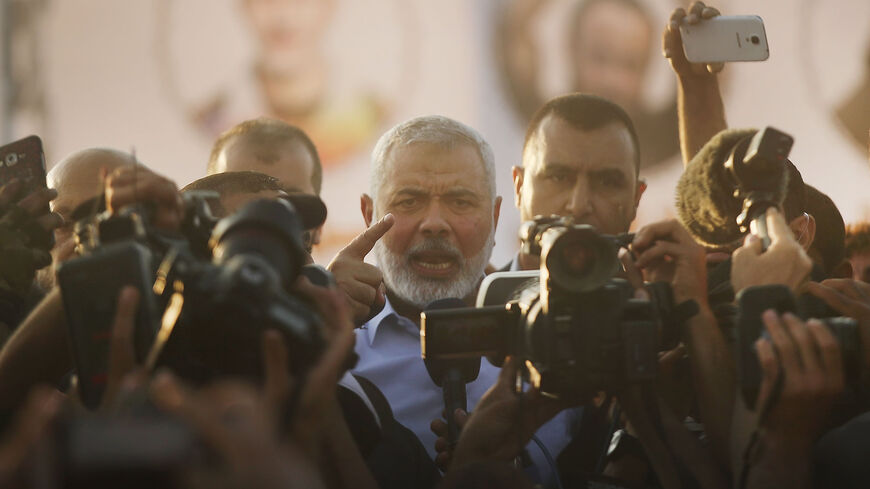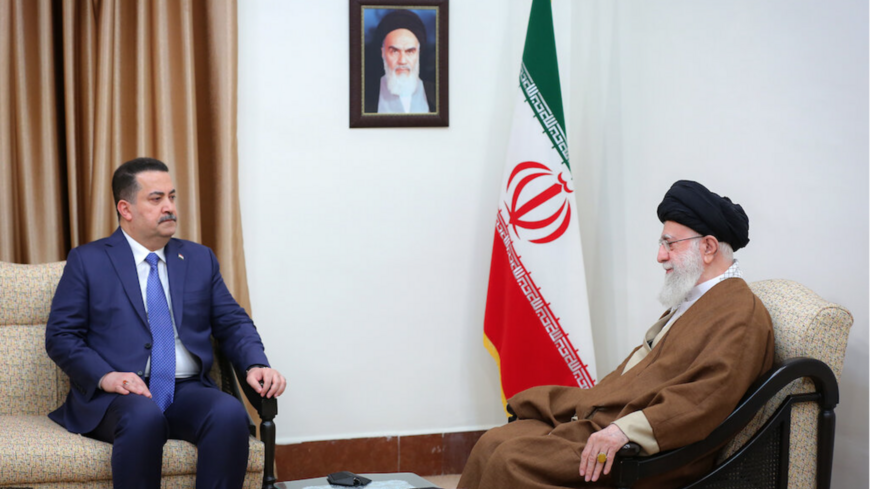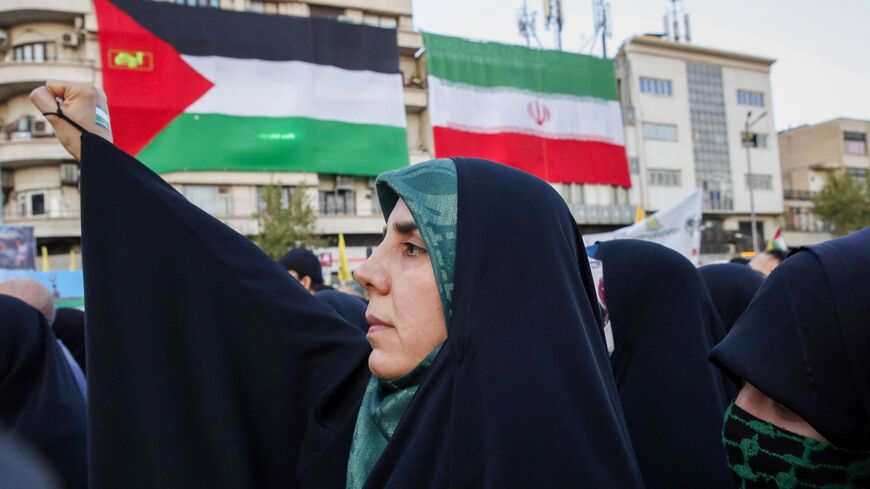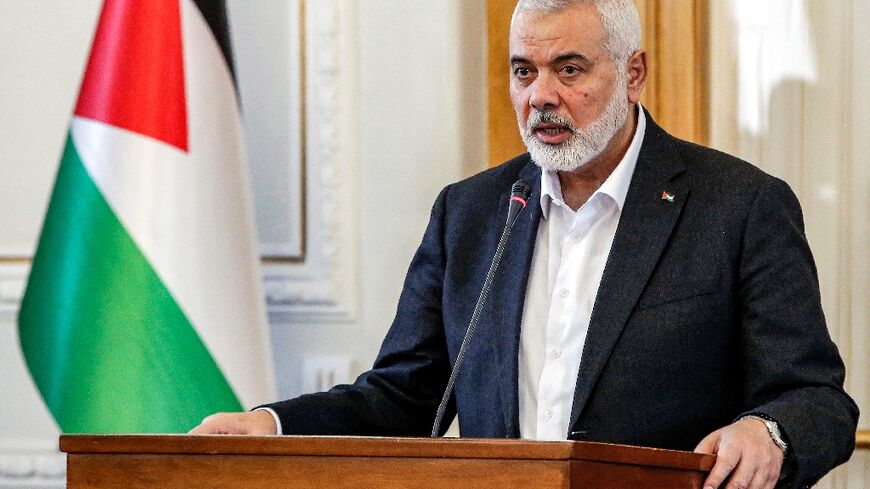Iran reassures Hamas of continued support as Haniyeh visits Tehran
The meetings in Tehran were held as Iranian officials celebrated a moment of triumph for Hamas after the United States allowed the UN Security Council to pass a Gaza cease-fire resolution.
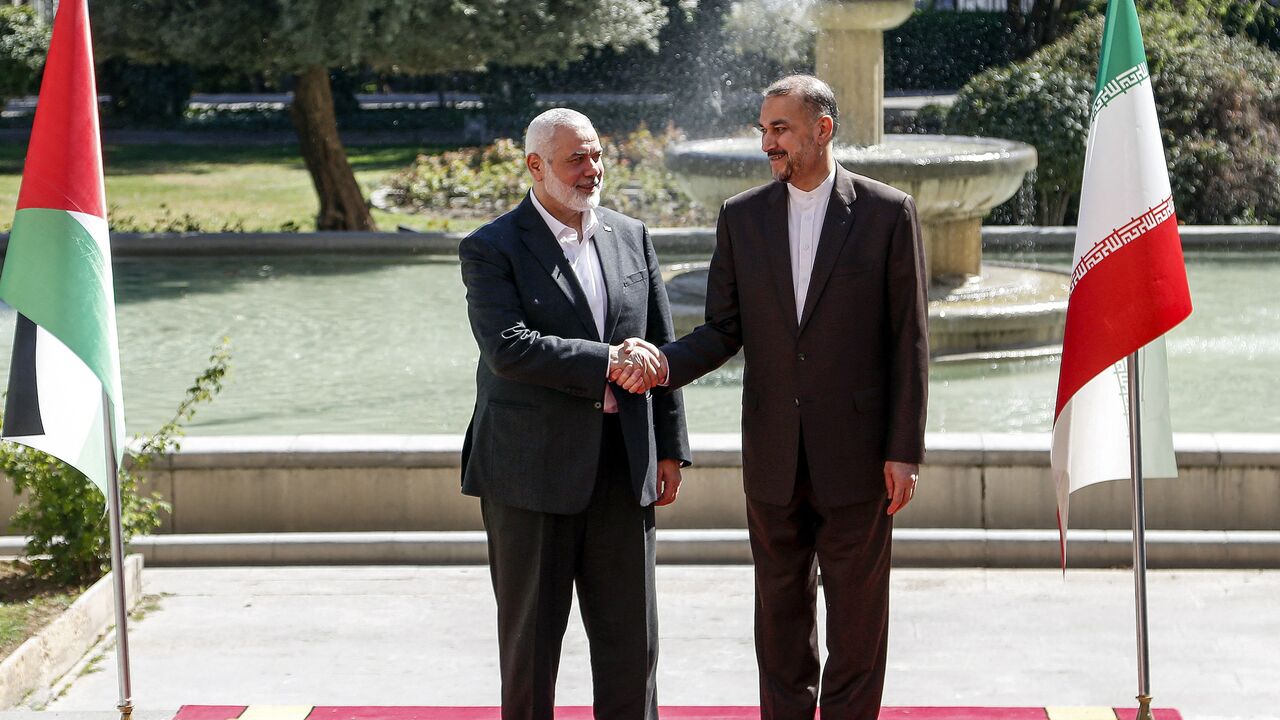
TEHRAN — Iranian Supreme Leader Ayatollah Ali Khamenei declared during a Tuesday meeting with Ismail Haniyeh, the political bureau chief of the Tehran-backed Hamas militant group, that the Islamic Republic will not hesitate to support Palestinians.
Khamenei hailed "resistance groups" — a network of regional militant organizations fighting Israel — for their "exceptional resilience," which he described as a "truly magnificent phenomenon," according to a readout from the meeting published on his official website.
Haniyeh's visit marked his second officially reported trip to Tehran since the outbreak of the Israeli war on Gaza, which was triggered by Hamas' deadly Oct. 7 attack on local communities and military bases in southern Israel.
Khamenei claimed that Israel had failed to reach any of its objectives in the Gaza war in which over 32,300 people, mostly civilians, have been killed, according to data released by the Hamas-run Gaza Health Ministry.
The Iranian leader's website reported that during the meeting, Haniyeh defended the Oct. 7 attack because it "shattered the myth of the Zionist regime's invincibility." Hamas' political leader promised Khamenei that Palestinian groups would continue to stand up against the "Zionist enemy," while he "briefed" the Iranian cleric on the latest from the battle going on between the militants and the Israeli army in Gaza.
A history of support
Iran has been a staunch Hamas supporter since the group was founded in 1987. Tehran is believed to have increasingly trained and funded the group, providing it with rockets, missiles and drones, and particularly helping it set up a complex maze of underground tunnels in Gaza to shield its equipment and infrastructure from Israeli strikes.
During the course of the ongoing Gaza war, however, Tehran has publicly distanced itself from the operational side, arguing that it was not involved or even aware of Hamas' surprise attacks on Israel.
The Tehran meeting was held one day after the UN Security Council voted to call for an immediate cease-fire in Gaza. The resolution was passed only after the United States changed earlier course and decided not to use its veto power to block the move. The resolution, which marked the first time the council had supported a cease-fire plan in Gaza, also followed a similar proposal by Washington on Friday, but one that was vetoed by its major international rivals, Moscow and Beijing.
The cease-fire resolution sparked a moment of jubilation among officials in Tehran. Nour News, the official organ of Iran's powerful Supreme National Security Council, described the vote as a "diplomatic triumph" for Hamas.
In a statement on Monday, Iran's Foreign Ministry said Israel's "fury at the resolution is indicative of the irreparable defeat it has suffered both in the battlefield and at the international and political stage."
Confirming Iran's support — albeit without elaborating — Haniyeh said the Islamic Republic "stands on the very frontline for the Palestinian cause and people," as he addressed a press conference alongside Iran's Foreign Minister Hossein Amir-Abdollahian in Tehran.
To the Iranian foreign minister, the Security Council resolution — "despite being belated" — was a "positive development" and "a victory for Palestinians."
"Even America and its partners have come to believe that eliminating Hamas … is an illusion and an unachievable goal," Amir-Abdollahian said.



